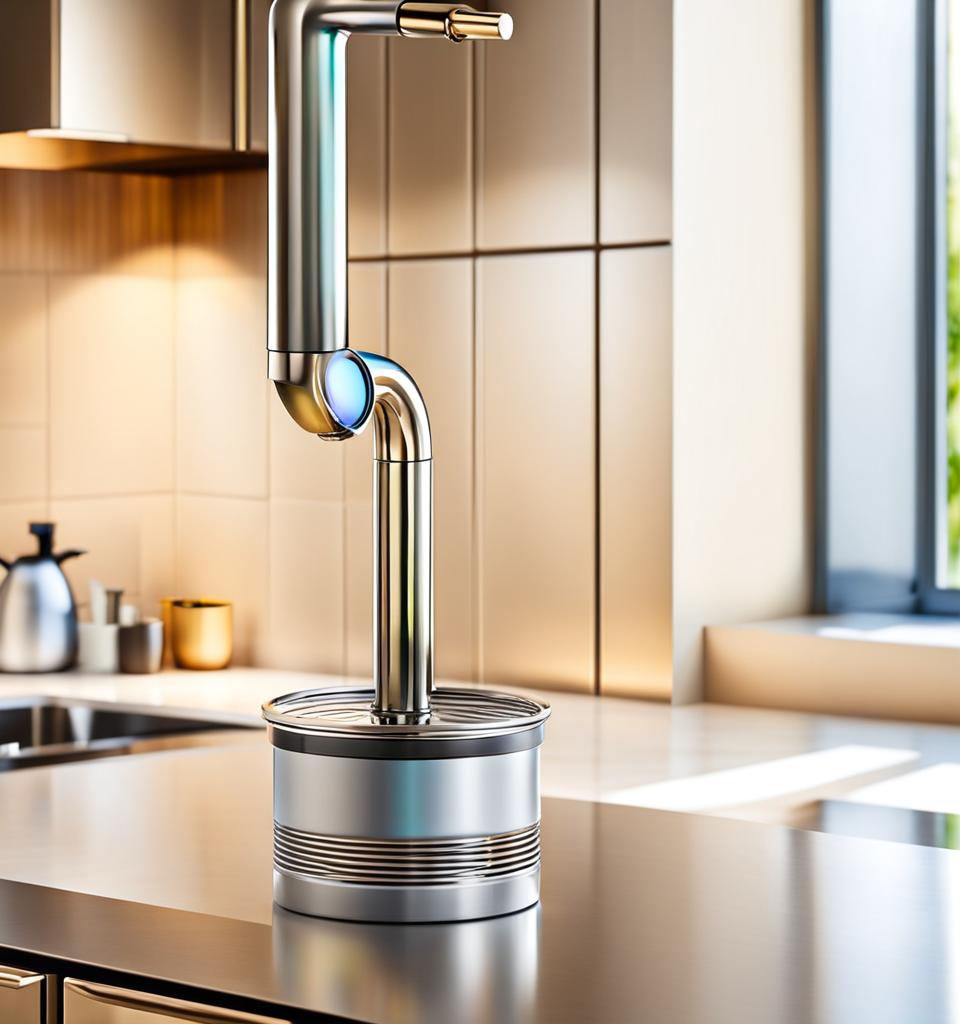Quickly Install a Built-In Faucet Filter in Your Kitchen for Pure Water
Having access to clean, fresh tasting water is a priority in most homes. Water straight from the tap often carries contaminants that affect taste and quality. One convenient solution that is growing in popularity is installing a kitchen faucet with a built-in water filter.
Faucets with integrated filtration systems provide filtered water with just the turn of the handle. Read on to learn why filtered faucets are a smart upgrade and how to install one easily in your kitchen.
Why Choose a Faucet with a Built-In Filter?
Kitchen faucets with built-in water filters offer tremendous benefits over standard faucets:

- Get filtered water from your main kitchen faucet without taking up under sink space
- Filters improve water taste, odor, and clarity by removing contaminants
- Convenient access to healthier drinking water for cooking and drinking
- Built-in filters are tested and certified by NSF to remove lead, chlorine, and cysts
- Reduces need for bottled water and plastic waste
Having filtered water accessible from the primary kitchen faucet makes these units highly convenient and effective. The filtration system is also NSF certified to remove common contaminants, so you can trust you are getting improved water quality.
How Do Built-In Faucet Filters Work?
Built-in filtration systems work by channeling tap water through an integrated filter as it flows out of the faucet. The integrated filter may contain:
- Carbon block filter - Absorbs contaminants
- Reverse osmosis membrane - Filters out dissolved solids
As water passes through, contaminants bind to the filter medium. This removes chlorine, particulates, lead, and cysts from the water. Filters typically last 6-12 months before needing replacement.
Filtration Effectiveness and Benefits
To be certified, built-in faucet filters must fulfill NSF standards for contaminant reduction. On average, certified models must remove at least 70% of lead and chlorine from water.
Many premium models filter smaller particles and microbes as well. This improves clarity, while removing harmful contaminants linked to adverse health effects. The end result is fresher, cleaner water from the tap.
What to Look for in a Filtered Faucet
When choosing a filtered kitchen faucet, here are some key features to consider:
Filtration Capacity and Flow Rate
Check the filter’s micron rating and certified capabilities to remove specific contaminants like lead and cysts. Also verify the flow rate is at least 1.5 gpm to avoid pressure drops.
Design and Special Features
Look for features like pull-down sprayers, soap dispensers, and touchless activation. The faucet should also have an indicator light to show when filter replacement is needed.
Style and Finish
Choose a style and finish that matches your kitchen decor. Most filtered faucets come in popular finishes like stainless steel, chrome, matte black, or nickel.
Faucet Dimensions
Measure to ensure adequate clearance under your upper cabinets for the faucet height. Also pick a comfortable reach style like high-arch or gooseneck.
How to Install a Filtered Faucet
Installing a kitchen faucet with built-in filter involves a few simple steps:
Tools and Parts
Gather supplies like basin wrenches, Teflon tape, and adjustable wrenches. Check if you need additional plumbing parts for under sink hook-up.
Removal and Installation
Turn off water supply lines and disconnect sink plumbing. Remove old faucet. Mount the new filtered faucet according to manufacturer instructions. Connect water supply lines and drainage.
Finishing Touches
Confirm fittings are tight with no leaks. Turn on water supply and test for proper operation. Flush per manufacturer directions. Enjoy your new filtered water!
Hiring a Plumber
If leery of doing your own plumbing, hire a professional. They can obtain any needed permits and ensure proper installation.
Ongoing Filter Replacement and Costs
Like any water filter, built-in faucet filters need occasional replacement. Here's what to expect:
Replacement Frequency
Plan to replace filter cartridges every 6-12 months depending on usage. Many models have a status light to indicate when a new filter is needed.
Replacing Cartridges
Order replacement cartridges from the manufacturer. Twist off the old cartridge and insert a fresh one. Reset the filter monitor light if equipped.
Filter Cartridge Cost
Replacement cartridges range from $40-60 each. Comparable to under sink filters that must be replaced annually.
Choosing the Best Built-In Filtered Faucet
With many models available, selecting the right filtered faucet takes some research:
Top Brands
Look at options from leading brands like Culligan, Brita, PUR, Delta Touch2O, and Kohler. Compare ratings and reviews.
Smart Capabilities
Some faucets add voice-activation, WiFi connectivity, and app integration. Useful for monitoring filter status.
Consider your water quality issues, family size, and preferred features. This will help narrow the options.
Investing in a filtered kitchen faucet means enjoying cleaner, better tasting water every time you turn on the tap. With easy installation and maintenance, it's a smart upgrade that will become an essential part of your kitchen.